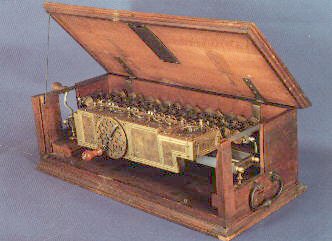 UEmedia - INDEX
UEmedia - INDEX
 LECTORIUM
LECTORIUM
 CALCULEMUS
CALCULEMUS
|
|
Media in European Union
S Y L L A B U S |
The course is given in
Wyższa Szkoła Administracji Publicznej
(College of Public Administration)
in Białystok, Poland
European Integration SectionThis course is meant to combine its main subject (A) "Media in EU" with (B) practical exercises in professional use of Internet, and with (C) some general ideas to motivate the process of European Integration. Here is the content of the respective parts.
A. The discourse is based on a set of documents related to the European Commisions's Green Paper concerned with the CONVERGENCE of the telecommunications, media and information technology sectors which have been made possible owing to digital technology.
- 1. To make this project comprehensible for those lacking fundamentals of computer science, the introductory comments are concerned with the digital-analog opposition and advantages of the digital data-processing.
- 2. The role of Internet in the environment of the remaining media, especially wireless telephony.
- 3. A political motivation underlying the Green Paper, especially the endeavour to fill the information technology gap between the UE and the US.
- 4. Internet as an effective means of the world-wide both competition and collaboration in e-commerce.
- 5. Selected items from the debate launched by the Green Paper.
To win scores for active participation in the course, each student should download one of the abovementioned documents and translate a chosen part of it into Polish.
B. Practical exercises in using the Web for purposes of the job market competition.

- 1. The concept of Curriculum Vitae. Examples to assist writing CVs.
- 2. On how, when applying for job, to do justice to one's competences and motivation, and to positively impress prospective employers. How to use the Web for this purpose; the document formats recommended: Word, HTML, PDF etc.
The students win scores through preparing these documents for the teacher's refereeing and also public discussion during the lessons. At the same time, they learn Web procedures when e-mailing these documents to the teacher, and taking part in producing WWW pages (to display their exercises for further discussion).
C. It is assumed that the listeners should learn some general ideas underlying the European awareness - to willingly engage themselves, as managers or civil servants, into the enterprise of European integration. Here are examples of relevant historical topics.
- 1. Max Weber's examination of Western Europa's civilizational advantages in his study Die protestantische Ethik und der Geist der Kapitalismus. Francois Guizot's understanding of the driving forces of European Civilization.
- The idea of Christian empire as conceived with Charlemagne, the role of Western monasticism, universities, etc.\ for intellectual foundations of that empire.
- The idea of Europe as a civilizational whole defined by scienttific and technological achievements in the 17th century (in spite of all the divides of that period). Leibniz's forwarding of this idea (exemplified with the sending of his calculating machine to Peter the Great and the Emperor of China).

Leibniz's machine. As WWW results both from communication technology and camputing technology, the first calculating machines were the first great steps towards the information society of our times.
